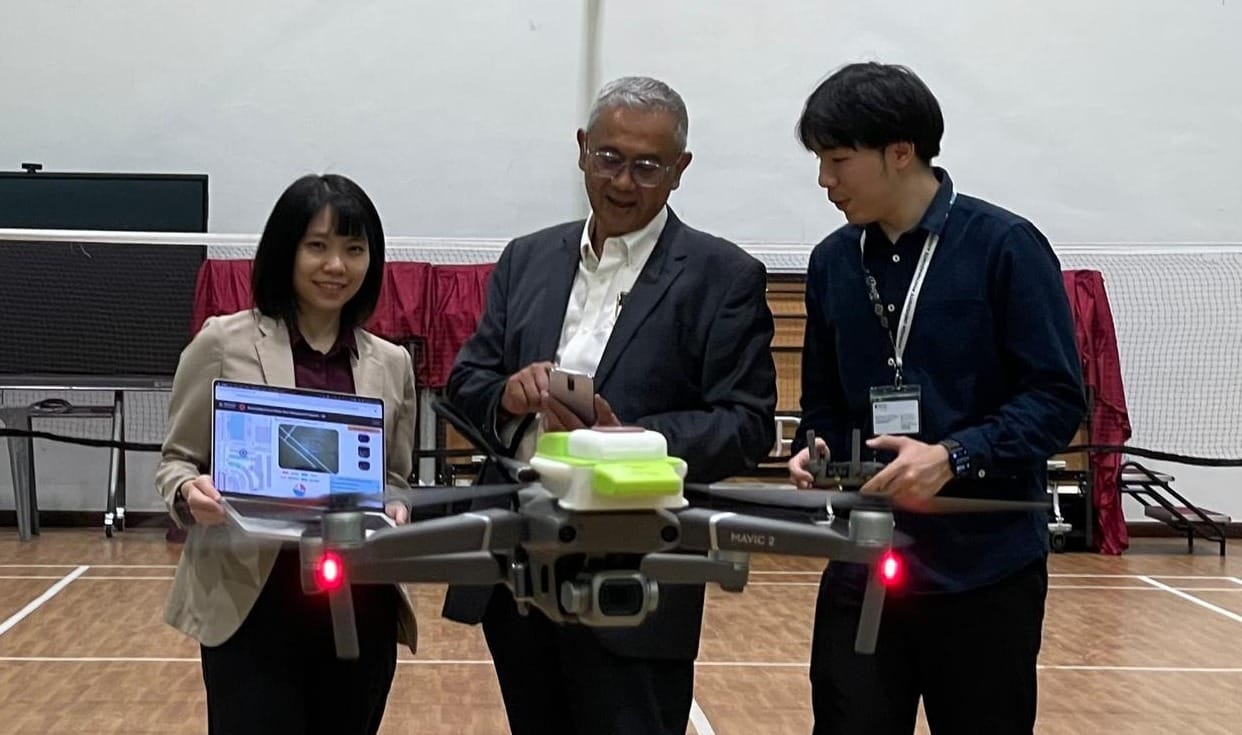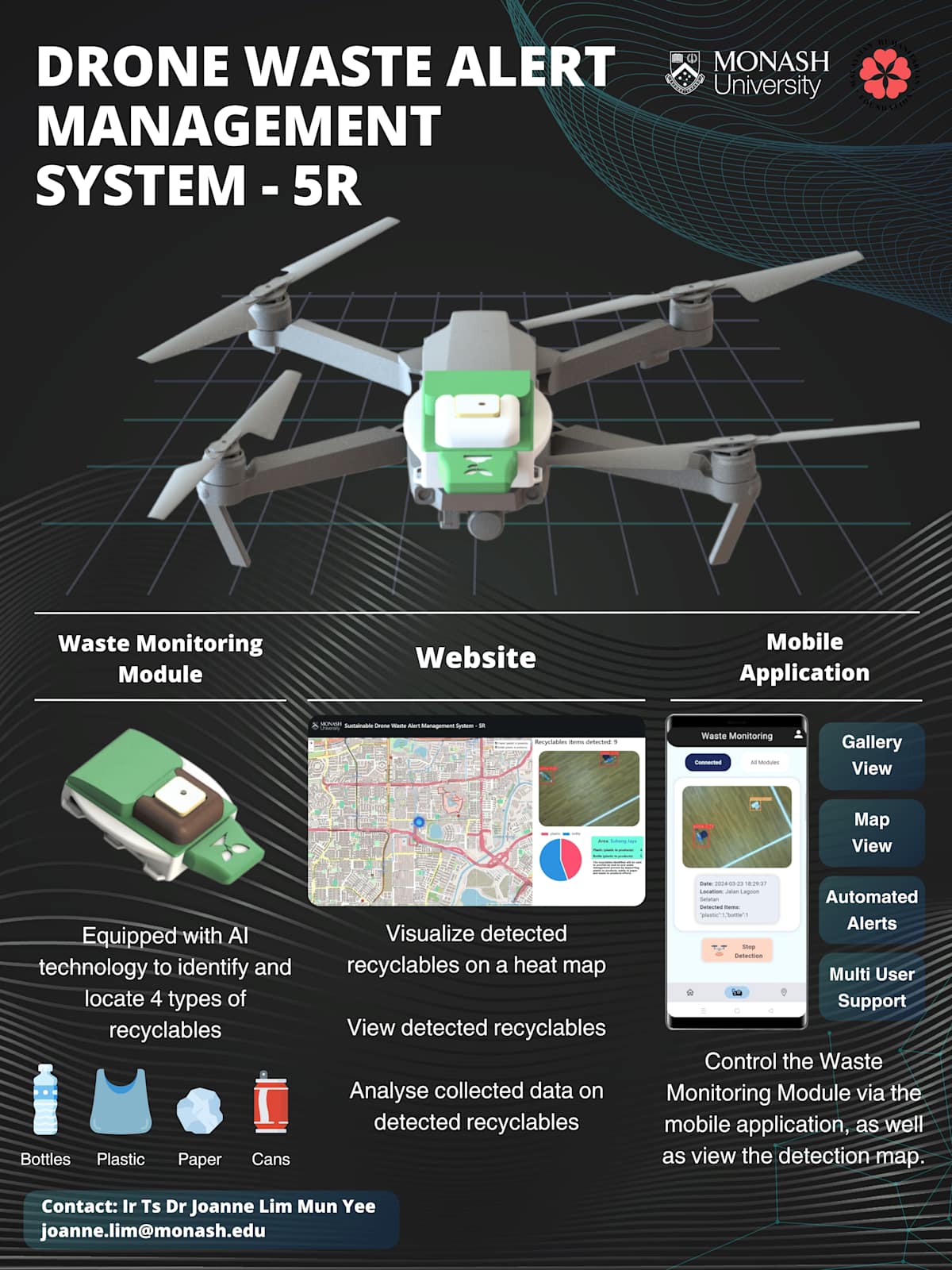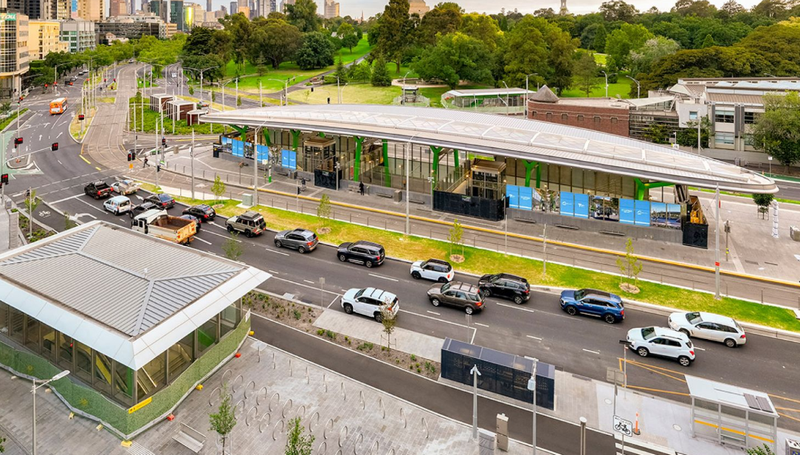
In a leap towards sustainable urban living, a partnership between the Malaysian Humanitarian Foundation (MHF) and Monash University Malaysia has yielded a cutting-edge drone waste alert management system. This collaborative effort aims to leverage technology to create cleaner cities and address pressing environmental concerns.
At the heart of the system is a fleet of specially designed drones equipped with high-resolution cameras and artificial intelligence (AI) algorithms that can detect, analyse, and respond to waste-related issues in real-time. The software provides immediate feedback to users, alerting them to manage and collect waste.
The technology has the ability to reach previously unmonitored areas – beaches, rivers, and remote locations that were once challenging for traditional waste management infrastructure to access.
This expanded coverage not only aids in cleaning up polluted areas, but also contributes to wildlife protection by monitoring air and water quality, and providing early warnings of potential environmental hazards.
The system is measured through metrics, including reducing illegal dumping incidents, improving air and water quality, and optimising resources such as labour and vehicles.
By tracking these indicators, the project team can assess the tangible environmental impact of their innovation.
Local communities stand to benefit significantly from this technological advancement. Quicker detection and response to waste accumulation leads to cleaner public spaces, reducing the risk of pollution-related health issues. The system also aids in identifying hazardous waste or illegal dumping sites.
Further, the visibility of drone operations has sparked increased public awareness and engagement in sustainability efforts.
Aligning with broader sustainability goals, the drone waste alert management system contributes to the United Nations Sustainable Development Goals (SDGs). It supports SDG 11 (Sustainable Cities and Communities) by promoting cleaner urban environments, SDG 12 (Responsible Consumption and Production) by encouraging better waste management practices, and SDG 13 (Climate Action) by reducing the carbon footprint of waste management operations.
The project also aids in enforcing international environmental standards, such as those outlined in the Basel Convention.
The system has already addressed waste management issues in practical scenarios. In densely populated urban areas, drones monitor public spaces for litter and illegal dumping. The technology also patrols known illegal dumping hotspots in abandoned lots and neglected areas.
Additionally, the system extends monitoring capabilities to remote or rural areas with limited waste management services.
The deployment of the system has been challenging. Technical issues, such as ensuring reliable drone operation in various weather conditions and complex urban environments, had to be addressed. The team overcame these hurdles by extensively testing, implementing backup systems, and developing efficient power management solutions.
Data integration and compliance with local regulations regarding drone usage and privacy concerns necessitated close collaboration with regulatory authorities and the implementation of stringent privacy protection measures.

While initial setup costs can be substantial, the long-term benefits of improved waste management efficiency and reduced operational expenses make it an attractive investment for municipalities and organisations. To make the technology more accessible, the team is exploring options such as modular solutions, partnerships, and leveraging technological advancements to reduce costs.
The project has made significant contributions to academic and practical research fields, advancing knowledge in technology integration, data analytics, urban planning, and environmental sustainability. The team’s work was presented at a World Clean-up Day event in Penang in April 2024.
Looking ahead, the research team has plans for expansion and improvement. Key milestones include:
- expanding pilot programs to diverse environments
- rolling out the system to additional municipalities
- developing modular solutions for smaller-scale implementations.
The system's scalability and adaptability make it suitable for a wide range of regions and waste management challenges, positioning it for potential global adoption.
The interdisciplinary nature of the project has been crucial to its success. The team brings together experts from various fields, including drone technology, software development, waste management, data analysis, regulatory compliance, and community engagement.
With the rise of drones and the increasing concern over privacy, Ir. Dr Joanne Lim Mun Yee and her team have invented a drone tracking system using the Internet of Things (IoT) Streetlight with computer vision known as DroGatLight.
Click to read: https://t.co/Ux5J5TNRcK pic.twitter.com/5khzCxJ58t— Monash Malaysia (@MonashMalaysia) April 27, 2021
Led by Dr Joanne Lim Mun Yee, of the Internet of Things (IoT) lab in the School of Engineering at Monash University, Malaysia, and Raja Mazhar Mohar bin Raja Tun Mohar, of the MHF, the team includes Shiv Mark Kumar, Liew Chan Yue, Lim Yun Mun, and Professor Edwin Tan Chee Pin.
Ethical considerations play a significant role in the project’s development and implementation. The team has addressed potential concerns related to privacy and safety by adhering to strict data protection protocols, following safety guidelines for drone operations, and engaging with communities to build trust and understanding.
As it continues to evolve and expand, this approach to waste management has the potential to transform urban environments, contributing to cleaner, healthier, and more sustainable communities across the globe.





